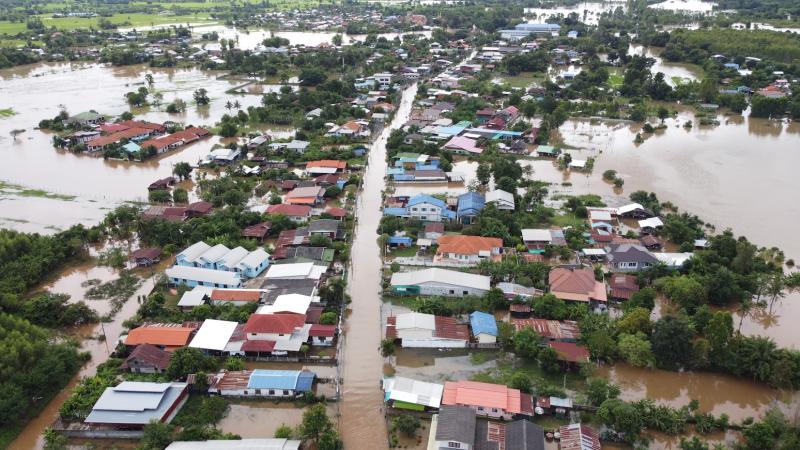
Thailand is battling the worst flooding in years with a large swathe of its crop land inundated by seasonal storms and swollen rivers, threatening to fuel food prices and hinder a nascent tourism recovery.
Popular tourism destinations, such as Bangkok and Chiang Mai, have reported flooding of streets this week after heavy rains triggered by typhoon Noru saw water level in the Chao Phraya and Ping rivers rising. An estimated 1.2 million rai (160,000 hectares) of agricultural land was hit by flooding with almost 82,000 houses damaged across 510 districts, according to official data.
With more storms forecast over the next few weeks, Thai officials are taking steps to minimize further damage to crops and houses with Prime Minister Prayut Chan-o-cha making a trip to flood-hit northeastern provinces on Tuesday to oversee relief efforts. Thailand received about 24% above average rainfall between Jan 1 and Sept 25, Kasikorn Research Center (KRC) reported, citing weather department data.

The biggest damage is to rice crop and it comes amid forecasts for smaller harvests from major producers such as India and Pakistan, which was hit by a devastating flood this year. The centre estimates Thailand’s main rice harvest may drop about 9% because of the flooding, damage to the crop close to the harvest period and high fertiliser prices.
“The current flood impact will hit households that are already vulnerable due to low purchasing power, high costs of living and high household debt,” KRC said in a report.
A lower rice output and damage to vegetable and fruits harvests may also spell bad news for a country that’s battling the highest food inflation in over a decade. The hit to agriculture adds to headwinds to growth such as high fuel and electricity prices and a weak baht, according to Tim Leelahaphan, Bangkok-based economist at Standard Chartered Bank.
“Flood impact could be a tail risk that could emerge in the next quarter or two for Thailand,” Mr Tim said. “We need to monitor whether it will impact manufacturing or result in rate cuts. Any potential impact on tourism, which we hope would recover in the next quarter or two, will be a new lesson for Thailand this time, especially as it is the hope for next year’s economic recovery.”
Thailand, also a major producer of rubber and sugar, is often ranked among the world’s most vulnerable to climate change. While the country was battered by flooding in 2019, 2017 and 2011, some regions suffered severe droughts in the past decade.
On Tuesday, Bank of Thailand (BoT) governor Sethaput Suthiwartnarueput said the revival in tourism will ensure Southeast Asia’s second-largest economy will continue to expand next year. The central bank has previously said the impact of floods needs close monitoring.







